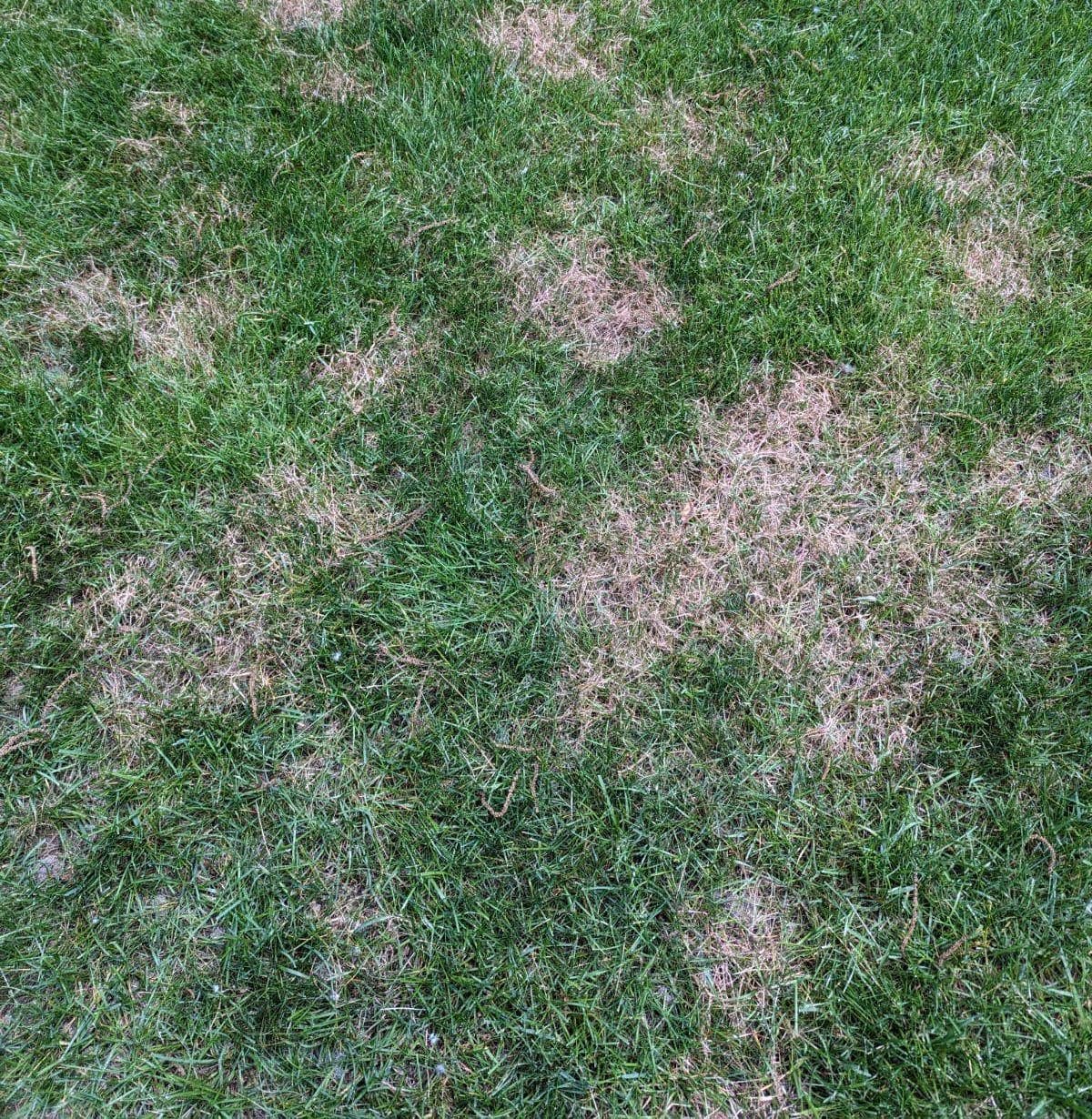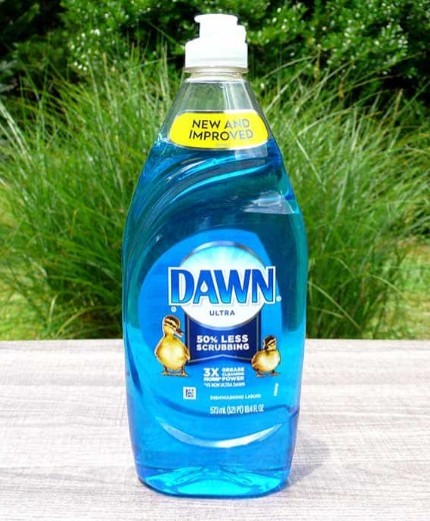Do you have fungi growing in your lawn or insects using your grass as shelter and a source of food and wondering how to get rid of them naturally?
You have probably come across the idea of spraying the lawn with soapy water as a herbicide, but does soapy water kill lawn fungus?
Yes, soapy water can effectively kill lawn fungus since it dries it out. However, beware that it dries everything it touches without discrimination, so you must use it as a spot treatment to be safe.
Get rid of fungi as soon as you find them growing on your lawn because they are unsightly, and some are even poisonous.
Some commercial chemicals are designed to kill fungi, which you can conveniently find at a local store. However, you may choose to go with a homemade alternative pesticide like soapy water.
If you do, here’s what you will need to know.
Does dish soap kill lawn fungus?
Yes, dawn dish soap kills lawn fungus by stripping its natural oils, making them wilt and die. It’s an effective homemade pesticide you can use to rid your lawn of fungi, weeds, and insects.
Make sure the soap you use does not have additives and dilute it properly for the safety of your grass. Soapy water’s chemical composition differs drastically based on the type of soap used to make it.
Read more:
The safest option is the commercial insecticidal soap since it’s made specifically for controlling pests and lessening the damage to your grass.
However, you can still use detergent used to hand-wash utensils (not dish-washing machine detergent) and liquid hand soaps, which are more affordable and still effective.
However, the moisturizers, dyes, and perfumes in these detergents may be harmful to the grass. Therefore, spray a diluted mixture of the detergent on a tiny portion of your lawn to ensure it’s safe to use on your grass.
Besides fungi, soapy water effectively kills tiny, small-bodied insects like aphids, mealy bugs, spider mites, psyllids, and white flies. However, larger, hard-shelled insects such as caterpillars and beetle larvae are immune to the effects of soapy water.
How To Use Soapy Water For Lawn Fungus
Here’s how to safely kill fungus in your yard using soapy water:
1) Create a diluted mixture of dish soap, water, and vegetable oil.
2) Fill a spray bottle with the soapy water solution.
3) Identify the affected areas of your lawn. Look for brown, yellow or dead patches of grass, which can be caused by lawn fungus.
4) Spray the affected areas with the soapy water solution. Be sure to cover the affected areas thoroughly.
5) Allow the soapy water to sit on the grass for at least 15 minutes.
6) Rinse the affected areas with clean water.
7) Use a hose to wash away the soap residue.
8) Repeat the treatment once a week until the fungus is gone.
If the fungi infestation covers extended areas, use a mixture of 2 water gallons and 4 oz of dish soap for a 1000 sq. ft. lawn. Soapy water will help you get rid of grass fungus naturally.
Will Dish Soap Kill Grass?
Yes, a concentrated form of dish soap will kill your grass by drying up the patches of grass it comes into contact with, making it die.
The surfactants in your laundry detergent or dish soap will dry the desirable turfgrass and kills them by making dirt and oil molecules soluble in water.
The dish-washing liquid in concentrated form breaks down a plant’s healthy, oil-based tissue, leaving behind leaves that cannot retain moisture anymore.
Lack of moisture together with sunlight and a little heat could result in crispy, brown patches of grass within the shortest time.
You may consider insecticidal soap that comprises fats or natural oils and alkali like sodium hydroxide because it does not have chemical surfactants. The problem is it will only kill insects, not fungi mycelium.
Find a safer, better alternative such as insecticidal soap if you can because dish soap puts your grass at risk.
However, if you must, mild dish soap is a better option than a strong laundry detergent because detergent leaves more visible harm to desirable turfgrass.
Is laundry detergent an effective lawn fungus treatment?
Yes, laundry detergent is an effective treatment for lawn fungus since the surfactants act on the fungi, drying them out. However, you must be careful when using lawn detergent because it also kills turfgrass, so you must spray the lawn carefully, targeting only the fungi.
Small amounts of mild laundry detergent won’t do too much harm to your grass, so avoid concentrated soapy water to avoid lasting or noticeable damage to your yard.
If you decide to use the water left from doing laundry on your lawn, make sure the laundry water comes from a liquid detergent that’s borax-free and low in sodium.
In addition, don’t use it in the same area repeatedly to avoid raising the soil’s alkalinity.
Note
It’s essential to differentiate detergent from soap because they are easily interchangeable. Soap is usually created by combining a base with fats or natural oils, although commercial brands often add more ingredients like scents or colors.
Therefore, soap is often biodegradable and less destructive to the environment. On the other hand, detergent is manufactured with synthetic chemicals and made to be tougher in removing grime, greases, and dirt.
While commonly identified as soap, dish-washing soap is a detergent that cuts through grease and wax to make your utensils squeaky clean.
While this is excellent for your dishes, it’s not so great for your plants and grass because it can remove the leaves’ oils and natural wax, drying them out.
Conclusion
To wrap things up:
Does soapy water kill lawn fungus?
Yes, soapy water kills lawn fungus by stripping its natural oils, making them wilt and die. It should be applied repeatedly for a few days to make it more effective.
You deserve a fungi-free lawn with green, healthy grass you and your family can enjoy.
Soapy water is an efficient fungi killer and will also get rid of insects, but make sure you protect the lawn parts without fungi during application.
Soapy water will come in handy when dealing with fungi that no commercial chemical-based products have been approved to get rid of them.

Hey there, I’m Derek Schew, a writer for Lawnholic.com, where we cover everything and anything related to lawns. As someone who’s spent countless hours tending to my own lawn, I’m passionate about sharing my knowledge and helping others achieve the perfect yard. From lawn care tips to product reviews, I’m committed to providing our readers with the most accurate and up-to-date information available. So whether you’re a seasoned lawn enthusiast or just getting started, I invite you to join our community and discover the joys of a lush, green lawn.


